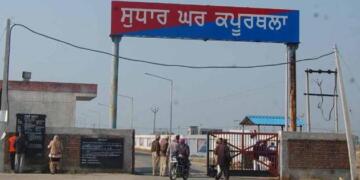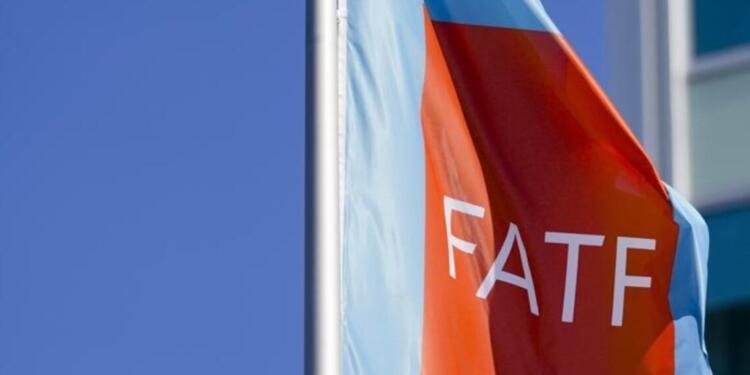In a rare move, the Financial Action Task Force (FATF), the global watchdog on terror financing, has strongly condemned the April 22 terror attack in Pahalgam, Jammu & Kashmir, which left 26 people dead. The organization also expressed deep concern about the financial systems enabling such acts of terrorism.
“Terrorist attacks kill, maim, and inspire fear around the world,” the FATF said in its official statement. “The FATF notes with grave concern and condemns the brutal terrorist attack in Pahalgam on 22 April 2025. This, and other recent attacks, could not occur without money and the means to move funds between terrorist supporters.”
Such direct condemnations are rare from the FATF and moreover publicly condemnation underscores the severity of the situation and reinforcing India’s long-held position that Pakistan continues to provide safe haven and financial support to cross-border terrorist activities. The statement also boosts India’s global campaign to isolate state sponsors of terrorism.
In its press release, the FATF reiterated its commitment to counter-terror financing across its network of over 200 jurisdictions:
“The FATF reaffirms its support to over 200 jurisdictions within its Global Network to build and enhance their counter-financing of terrorism (CFT) measures… The FATF expresses grave concern and condemns the brutal terrorist attack in Pahalgam, Jammu & Kashmir, India, on 22 April 2025.”
The FATF, based in Paris, is tasked with monitoring global compliance with anti-money laundering and counter-terror financing norms. Countries under scrutiny are placed on the organization’s ‘grey list,’ subjecting them to heightened monitoring until identified deficiencies are corrected. Grey-listing can negatively impact a country’s economic credibility and its access to international financial systems.
Pakistan’s history with the Financial Action Task Force (FATF)—the Paris‑based watchdog against money laundering and terror financing—dates back to 2008, when it was first placed on the FATF’s “grey list” for failing to curb terror financing and money laundering. Since then, Pakistan has landed on the grey list two more times (2012 and 2018), often coinciding with election periods or transitions of power.
When a jurisdiction is grey‑listed, it commits to resolving identified strategic deficiencies within agreed timeframes under enhanced monitoring. In October 2022, Pakistan was briefly taken off the grey list after achieving compliance on most recommendations, but remained in an “enhanced follow‑up” category for only partially meeting Recommendation 38 on predicate offences.
Fourteen days after the Pahalgam attack, India launched Operation Sindoor on May 7, a series of cross-border strikes on nine terror bases of Lashkar-e-Taiba, Hizbul Mujhahideen and Jaish-e- Mohammad in Pakistan and Pakistan-occupied Kashmir, which was followed by three days of military confrontation between India and Pakistan.
India has been actively working through multilateral platforms to curb the flow of funds to terrorist networks operating out of Pakistan. As part of these efforts, New Delhi recently raised objections to the Asian Development Bank’s (ADB) approval of additional financial support to Pakistan. Indian officials argued that Islamabad’s increasing military expenditure cannot be justified solely through internal resource mobilization.
Meanwhile, New Delhi has been leveraging multilateral platforms to stem terrorist funding. Most recently, India “vehemently opposed” the Asian Development Bank’s decision to extend additional financing to Pakistan, arguing that Islamabad’s rising military expenditure cannot be fully justified by domestic revenue.
Taken together, these developments—from Pakistan’s recurring grey‑list status and the FATF’s unprecedented rebuke, to India’s own military and diplomatic responses—illustrate the intensifying battle over terror financing and the international community’s efforts to hold state and non‑state actors accountable.
India also sent an all seven multi-party delegations that visited 33 countries over the past two weeks to present India’s stand on cross-border terrorism and Operation Sindoor.The government has ceased allowing Pakistani nationals to travel to India under the SAARC Visa Exemption Scheme (SVES). The defence, naval, and air advisors at the Pakistani High Commission in New Delhi were declared persona non grata and given one week to depart. India also announced it would withdraw its own defence staff from the Indian High Commission in Islamabad.
India has formally urged the FATF to “do the right thing” by returning Pakistan to its grey list at the upcoming autumn plenary.
The FATF Recommendations provide a comprehensive framework of measures to help countries tackle illicit financial flows. These include a robust framework of laws, regulations and operational measures to ensure national authorities can take effective action to detect and disrupt financial flows that fuel crime and terrorism, and punish those responsible for illegal activity.
The 40 Recommendations are divided into seven distinct areas:
AML/CFT Policies and coordination
Money laundering and confiscation
Terrorist financing and financing of proliferation
Preventive measures
Transparency and beneficial ownership of legal persons and arrangements
Powers and responsibilities of competent authorities and other institutional measures
International cooperation























